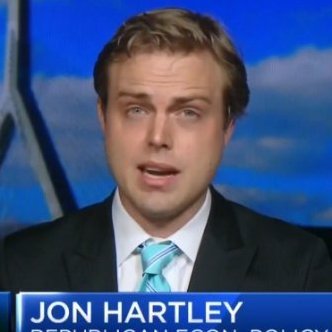
Christian Matthes
@cmatthes_econ
Followers
3K
Following
36K
Media
135
Statuses
3K
@nd_econ Economics Professor. @goetheuni / @nyuniversity alumnus.
South Bend, IN
Joined December 2018
How can we leverage existing results that use cross-sectional identification to estimate aggregate effects? Felipe Schwartzman (@MacroInPieces), Naoya Nagasaka, and I address this problem in our new paper “Estimating the Missing Intercept”. https://t.co/nNbkMesAYu
1
15
44
Mein Interview mit @ZDFheute zum gestrigen Nobelpreis für Wirtschaftswissenschaften: https://t.co/rP5PAZbGDU
zdfheute.de
Der Ökonom Bachmann erklärt im Interview, wofür die diesjährigen Wirtschaftsnobelpreisträger ausgezeichnet werden - und was ihn daran überrascht.
2
6
25
The Fed can’t go wrong hiring macro people with an NYU background!
Thrilled to announce that John Leahy will become the @chicagofed’s next director of research John, the Allen Sinai Professor of Macroeconomics and Public Policy and chair of the Econ dept. at @umich, is a lovely guy and a fabulous economist. Welcome to Da Bank, John.
0
0
25
I was thrilled to learn this morning that John Clarke, Michel Devoret, and John Martinis have won the 2025 Nobel Prize in Physics “for the discovery of macroscopic quantum mechanical tunnelling and energy quantisation in an electric circuit.” Quantum tunnelling might sound
9
51
271
Essentially, the assumptions and results from those methods constrain the ways in which the policy of interest affect individual units. Because the factor structure allows for data reduction, those constraints are more than enough to help us find the aggregate effects.
0
0
1
The main insight is this: The presence of aggregate shocks implies a factor structure in forecast errors at the local level. Cross-sectional identification methods can be used to identify factors of interest, capturing the effects of the policies of interest on every local unit
1
0
2
The paper tries to resolve a tension in much of recent macro (and more broadly applied empirical) work: Cross-sectional data provides a lot of useful information, that can be leveraged to credibly identify and estimate the effects of various policies. But that credible
1
0
3
Great thread!
@joshgans and I did an internal talk on AI for research. Mostly demos, so no slides, but broadly: 1) Research should be efficient, open & replicable. 2) AI helps will all three. 3) Always use the best model. 4) Structure your processes/tools/etc. so you can continue to do 3. 1/15
0
0
2
An amazing find - all these quotes are fantastic.
In 1984, Forbes interviewed many macroeconomists for an article “The Rebirth of Free Market Economics” & asked each what school they belong to “neo-Keynesianism” or “ratex” for rational expectations. Tom Sargent said “Keynesianism and Monetarism, they’re both gone, they’re dead”.
0
2
7
11 (!) new hires in the econ department here @nd_econ this year. And we are hiring again this year! https://t.co/QmpW3YVlxT
al.nd.edu
The Department of Economics in the College of Arts & Letters at the University of Notre Dame has added 11 new economists to its faculty, including t...
1
0
30
Including "The Consumption Origins of Business Cycles: Lessons from Sectoral Dynamics" joint with @MacroInPieces - amazing to see the paper finally out in print.
The October 2025 issue of AEJ: Macroeconomics (17, 4) is now available online at https://t.co/3UECsbYgoM.
0
1
50
As a researcher at a frontier lab I’m often surprised by how unaware of current AI progress public discussions are. I wrote a post to summarize studies of recent progress, and what we should expect in the next 1-2 years: https://t.co/B7438Z9lOF
228
828
6K
Nice feature from @JenLada on Notre Dame RB Jeremiyah Love, whose doctor told his parents that he could be on the spectrum. His father Jason: “It’s not a weakness, that’s his superpower.” Jeremiyah: “Someone will probably think I’m crazy, but I feel like for that certain group
12
53
1K
We are hiring (again!). We are searching for up to four tenure-track hires. Two of these are open-field/open-rank. Two are endowed at the full professor level -- one with a focus on applied micro and poverty, the other with a focus on demography.
1
53
165
⏳ Time to reorganize universities from scratch? I have been thinking a lot about what it means to be a university in 2025, once AI has arrived. My approach to learning new topics has undergone a significant change. Instead of relying only on textbooks or papers, I now integrate
29
85
556
How real-time data misled policymakers during the post-COVID recovery https://t.co/T6SISjaj3W # via @cepr_org
3
4
25













